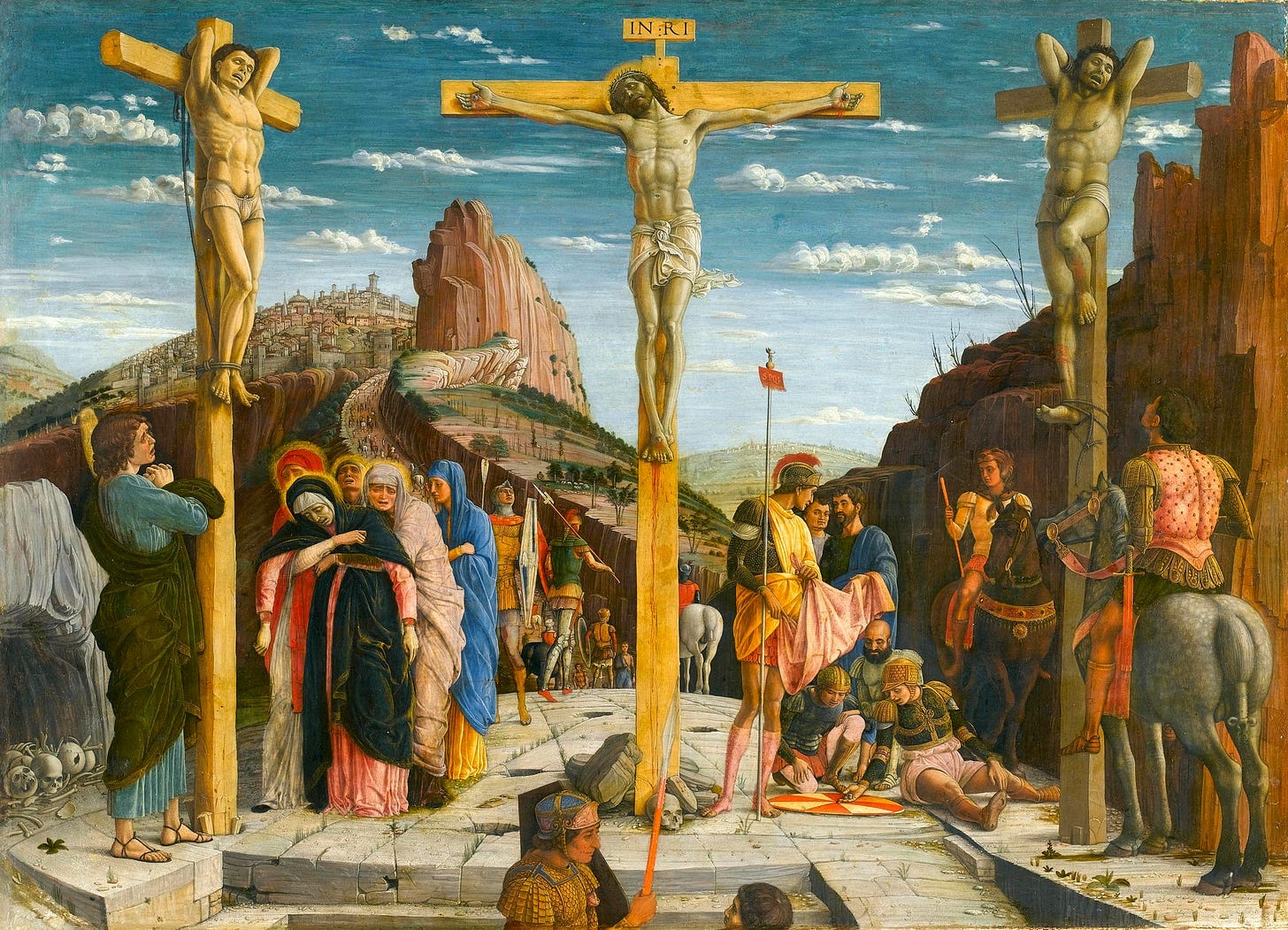Where Did Lazarus Go?
The Gospels make it clear: Lazarus—and his sisters, Mary and Martha—were special friends of Jesus. They were so close that “Jesus wept” (John 11:35) at the tomb of his dear friend; so close that Jesus raised him from the dead and returned him, alive and whole, to his mourning sisters.
Where, then, was Lazarus when Jesus was the one facing death? Where was he during his Friend’s brutal torture, His gruesome crucifixion, the sorrowful moment when He was laid in the tomb?
Surely Lazarus must have known what was happening. News of the captured Messiah must have spread rapidly, and Lazarus’ hometown of Bethany was a mere three kilometers from Jerusalem.
“But standing by the Cross of Jesus were His mother, and His mother’s sister, Mary the wife of Clopas, and Mary Magdalene.”
(John 19:25)
Lazarus’ own sister may have been clinging to the foot of the Cross. It’s been debated whether or not Mary Magdalene—Mary of Magdala—was the same person as Mary of Bethany. Some scholars think this is unlikely. How could Mary be from both Magdala and Bethany? Mention of the two towns seems to indicate two different women.
But could the reference to Magdala and Bethany indicate not two different physical women, but one woman with a radically changed life? Jesus met Mary Magdalene in Galilee where she had seven demons cast out of her (Luke 8:2), which seems to indicate she’d led a sinful life of some sort. Perhaps after her conversion and cleansing, the Prodigal Daughter felt worthy enough to return home to her family in Bethany, redeemed and healed by Christ. Perhaps, then, Mary—once of Magdala—was truly Mary of Bethany.
Perhaps she, like her brother Lazarus, had been raised from the dead by Jesus. Returned, alive and whole, to her family.
It’s impossible to say for certain whether or not Mary Magdalene and Mary of Bethany were one and the same person, but it doesn’t matter. What matters is that this Mary, also beloved by Jesus, heard what was happening to Him. Upon learning the news, she immediately rushed to her Master’s side.
Lazarus, apparently, did not.
We’ll never know exactly why Lazarus failed to show up when his Friend needed him most. Perhaps the guy was out of town on business. Maybe he was in the fields where no news could reach him. Perhaps he slept late and missed the morning edition, or he was hanging out with all those apostles who also failed to show up at the Crucifixion.
However, chances are Lazarus let fear overtake his soul. The Romans were out for blood, and Lazarus was proof of Jesus’ power over death and His ability to miraculously intervene in any way His Father willed. If Lazarus showed himself in public, the Romans would surely do all they could to capture and kill him, too.
“When the great crowd of the Jews learned that He was there, they came, not only on account of Jesus but also to see Lazarus, whom He had raised from the dead. So the chief priests planned to put Lazarus also to death, because on account of him many of the Jews were going away and believing in Jesus.”
(John 12:9-11)
We can’t really blame poor Lazarus. He’d just died, and he didn’t want to go through that again—at least not so soon.
Even so, this story can help us reflect on our own lives. How many times have we failed to remain by Jesus’ side out of fear? How many times have we failed to speak His truth or stand up for His gracious charity? How many times have we kept silent about our faith or failed to proclaim His message even as anti-Christian rhetoric is bandied about? Have we consistently stood up for life—from conception to natural death—or have we decided to sit back and let others fight that battle, because we’re too afraid of what people might think if we say anything contrary to popular opinion? Have we given in to overwhelming fears, to unhealthy anxieties that replace trust in God with human concerns?
There are so many ways to betray Christ, so many ways to refuse to show up at the foot of His Cross—but failing to do so out of fear of what others may think about us, or how they may react, is one of the deepest betrayals. Not only to Him, but to our true selves as well.
When we make an honest and authentic examination of conscience, when we refuse to give in to our unreasonable fears and banish them to the foot of the Cross, Christ will take our unwarranted anxieties upon Himself. He’ll replace our concerns with His peace.
“Let not your hearts be troubled; believe in God, believe also in Me … Peace I leave with you; My peace I give to you; not as the world gives do I give to you. Let not your hearts be troubled, neither let them be afraid.”
(John 14:1,27)
We just have to trust Him. We have to be open to Him, just as He opened Himself up to us on the Cross—vulnerable and human, divine and mercifully loving.
We have to be fully open to Christ. And that, perhaps, is the most difficult thing to do.
If we show up at the foot of the Cross rather than running away, watch out and see what happens. It’ll be wonderful and blessed, of that I can reassure you. This is a divine guarantee.







A lot of food for thought here. I know I have betrayed Our Lord countless times with what I thought and hoped were good, wise excuses! My pride would rather not use that word 'fear'😲